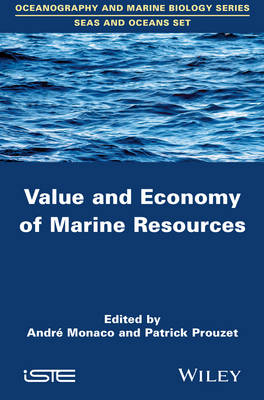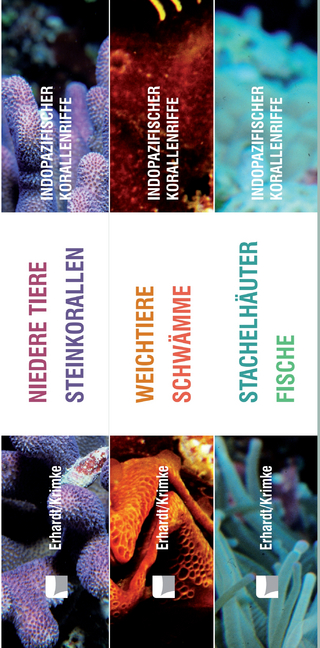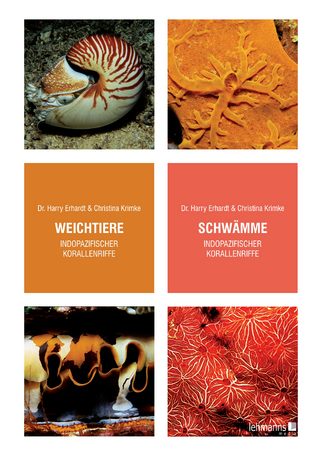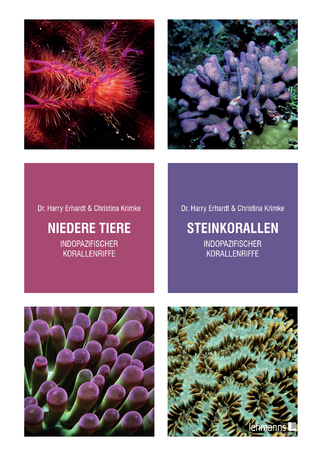
Value and Economy of Marine Resources
ISTE Ltd and John Wiley & Sons Inc (Verlag)
978-1-84821-706-5 (ISBN)
The recent development of marine biotechnology , the discovery of a great pharmacopoeia especially in reef environments , the development of marine renewables , are examples which show that man can develop through these new technologies property and services of the ocean.
But this development resources under pressure of global change requires not only taking into account technical, but also social and political. This is the price that the analysis of maritime activities will assess the sustainability and development of various economic sectors and coastal populations, faced with the objectives of a "blue growth" associated with a return to the "good state" of the marine environment.
André Monaco is Emeritus Director of Research for the French national research center (CNRS). His research interests concern marine sedimentology and geochemistry. He was responsible for part of the organizing committee for several French and European programs and has been guest editor for four special issues in international journals. Patrick Prouzet is Director of Research focusing on the ecosystemic approach at Ifremer in France. He specializes in the biology and dynamics of anadromous fish such as Atlantic salmon and eels. He is the author or co-author of several works on these species or on estuary fishing.
FOREWORD xi
CHAPTER 1. THE SERVICES PROVIDED BY MARINE ECOSYSTEMS: ECONOMIC ASSESSMENTS AND THEIR USAGES 1
Harold LEVREL, Pedro CABRAL, Océane MARCONE and Rémi MONGRUEL
1.1. Marine ecosystem services 1
1.1.1. Ecosystem services 1
1.1.2. A historic balance leading to an inefficient exploitation of ecosystem services 4
1.1.3. Marine ecosystem services 6
1.2. The monetary evaluation of ecosystem services 11
1.2.1. The factors that motivate demands for monetary evaluation 11
1.2.2. Monetary evaluation methods and their limits 14
1.3. The monetary evaluation of ecosystem services: some results for marine ecosystems 20
1.4. The effective use of the assessment of benefits associated with ecosystem services 26
1.4.1. The expected uses of monetary evaluation 26
1.5. A complementary approach: assessing the cost of maintaining ecosystem services 29
1.5.1. The principles of assessment 29
1.5.2. Evaluation of the cost of the degradation of the environment in the directive framework “Strategy for the marine habitat” 30
1.6. Toward multifaceted evaluations of ecosystem services using a spatial approach 34
1.6.1. The integrated spatial evaluation of marine and coastal ecosystem services 34
1.6.2. The spatial integrated assessment of ES and the compromises associated with their development 37
1.6.3. Tools for spatial integrated assessment of ecosystem services 38
1.7. Conclusions 41
1.8. Bibliography 42
CHAPTER 2. FISHERIES AND AQUACULTURE SUSTAINABILITY 53
Sylvestre VOISIN and Pierre FRÉON
2.1. Sustainability and responsibility of provisioning: learning the lessions from overfishing 53
2.1.1. Introduction: challenges and summary of key points 54
2.1.2. The initial fisheries approach challenged by the complexity of the ocean ecosystem and the failures of fisheries regulation 59
2.1.3. Contributions of the new sciences on sustainability and responsibility 68
2.1.4. New accounting framework for sustainability and responsibility: integrating uncertainty and “uncontrollability” in fishery and aquaculture management 86
2.2. Sustainability evaluation methods: translation of scientific knowledge for a political debate 94
2.2.1. Classification and good use of the sustainability and responsibility evaluation methods 94
2.2.2. Sustainability analysis of fisheries and aquaculture supply chains: state of the art, trends of the new practices and case study 96
2.2.3. Relevance of the concepts of ecosystem-based fisheries management, bioeconomics, sustainable and responsible consumption of seafood products 118
2.3. Interpretations of the evaluations of sustainability/responsibility in global performance: scenarios of complex organization policies and strategies 121
2.3.1. Interpretation of the sustainability analysis and knowledge management 121
2.3.2. Large prospective scenarios on the organization of fisheries and marine aquaculture supply chains in a globalized context 124
2.3.3. Conclusion and perspective: toward an integrated sustainable and responsible approach to fishery and aquaculture management 131
2.4. Acknowledgments 134
2.5. Appendices 135
2.5.1. Appendix 1 135
2.5.2. Appendix 2 136
2.5.3. Appendix 3 137
2.6. Bibliography 138
CHAPTER 3. FISHERIES ECONOMICS 153
Christian CHABOUD
3.1. Outline of fisheries economics 153
3.1.1. Object of fisheries economics 153
3.1.2. Specific features and characteristics of fisheries economics 154
3.2. The bioeconomic approach of fisheries 160
3.2.1. Gordon–Schaefer’s model 161
3.2.2. Dynamic non-equilibrium model 187
3.2.3. The Clark Munro’s model: the golden rule of the intertemporal allocation of natural capital 193
3.2.4. The age-structured bioeconomic models 200
3.2.5. Toward more realistic and complex bioeconomic models 210
3.3. Contribution of economics to fisheries management 211
3.3.1. A negative view about the efficiency of public policies in the fishery sector 211
3.3.2. A classification attempt of the tools for fisheries management 214
3.3.3. An economic assessment of the relevance of the tools of fisheries management 215
3.4. Conclusion: the contributions of fisheries economics and its future evolution 222
3.5. Bibliography 224
CHAPTER 4. MARITIME ECONOMY: DEFINITION AND MAIN ASPECTS 233
Régis KALAYDJIAN
4.1. Overview of the European maritime economy 235
4.1.1. Marine resources 235
4.1.2. Maritime transport 240
4.1.3. Management of the marine environment 242
4.1.4. The diversity of the maritime economy 244
4.2. The European maritime policy and its economic information requirements 245
4.3. Sector-based approach to the maritime economy 250
4.4. Maritime economy coverage 253
4.5. Maritime economy: sector-based approach and methodology issues 256
4.6. Sector-based approach to the French maritime economy 258
4.7. From a sector-based approach to a maritime basins approach 261
4.7.1. Economic and social assessment of the MSFD: use of marine waters 262
4.7.2. The Atlantic maritime basin: a European project 267
4.8. Ecosystems and costs of degradation 267
4.8.1. Ecosystem approach to the costs of degradation 268
4.8.2. Practical application of the ecosystem approach 272
4.8.3. Direct approach to degradation costs 273
4.8.4. Combining the different approaches: the problem of local data 275
4.9. Conclusions 278
4.10. Appendices 280
4.11. Bibliography 284
LIST OF AUTHORS 291
INDEX 293
| Verlagsort | London |
|---|---|
| Sprache | englisch |
| Maße | 165 x 241 mm |
| Gewicht | 612 g |
| Themenwelt | Naturwissenschaften ► Biologie ► Limnologie / Meeresbiologie |
| Naturwissenschaften ► Biologie ► Ökologie / Naturschutz | |
| Naturwissenschaften ► Geowissenschaften ► Geologie | |
| Naturwissenschaften ► Geowissenschaften ► Hydrologie / Ozeanografie | |
| ISBN-10 | 1-84821-706-4 / 1848217064 |
| ISBN-13 | 978-1-84821-706-5 / 9781848217065 |
| Zustand | Neuware |
| Informationen gemäß Produktsicherheitsverordnung (GPSR) | |
| Haben Sie eine Frage zum Produkt? |
aus dem Bereich


